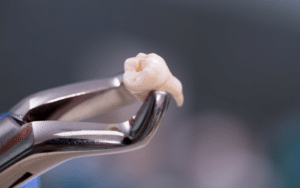Temporomandibular joint and muscle disorders, commonly known as TMJ are a collective conditions that can cause pain and dysfunction in the jaw joint and chewing muscles responsible for its movement. It’s estimated that over 30 million people in the United States have TMJ disorders, with the condition affecting more women than men.
What causes TMJ disorders?
Although the medical community has not yet been able to discover the causes of TMJ disorders, they have concluded numerous possible factors that contribute to the development of the condition.
The TMJ is complex concept, with many associated muscles, tissues and facial nerves. Therefore usually, changes in any one of these parts can lead to the TMJ disorder symptoms.
Some of the Possible Causes of Temporomandibular joint Disorders:
- Disorder in the articular disc that helps keep jaw movement smooth.
- Arthritis and inflammation in the TMJ that can damage the cartilage.
- Grinding your teeth or clenching your jaw too often that creates tension in the jaw muscles.
- As the condition is more common in women than in men, researchers think that there is a possible link between female hormones and TMJ disorders.
- Infections can trigger the condition.
- Injury to the jaw, even a minor one can lead to TMK disorders.
- If anyone in your family has a TMJ disorder, you’re more prone to developing one too.
Signs and Symptoms
A variety of symptoms can be linked to the condition, including the following:
- Pain in the chewing muscles and jaw joint
- Radiating discomfort in the face, jaw or neck
- Stiffness in jaw muscles
- Limited movement of the jaw
- Irritation when opening or closing the mouth
- Change in the way the upper and lower teeth fit together
Treatments
TMJ disorder symptoms respond well to many home remedies. The following remedies can help you find some relief:
- Ice or cold packs to the affected area
- Over-the-Counter nonsteroidal anti-inflammatory drugs such as ibuprofen (Advil, Motrin) or naproxen
- Eating soft foods
- Massage and stress reduction techniques, or gentle self-stretching if the jaw and neck muscle
When the above home remedies do not work, medical treatment options may be necessary. Some of them include:
- Dental splint – a dental appliance that is placed in the mouth to keep the teeth in alignment and prevent tooth grinding.
- You may be recommended BOTOX to relax the muscles of the jaw.
- Physical therapy that involves jaw exercises to strengthen muscles, improve flexibility and other range of motion.
- Severe cases of TMJ disorder may require dental surgery, or surgery on the jaw.
- TMJ arthroscopy may be recommended by your doctor.
- You may also advise to undergo total joint replacement.
Keep in mind that if treatment is necessary, it should be based on a reasonable diagnosis and the treatment bases on your special needs.
To learn more about the Temporomandibular joint disorders, we encourage you to get in touch with us today. Contact us and book an appointment so that we can start working to treat this condition.




